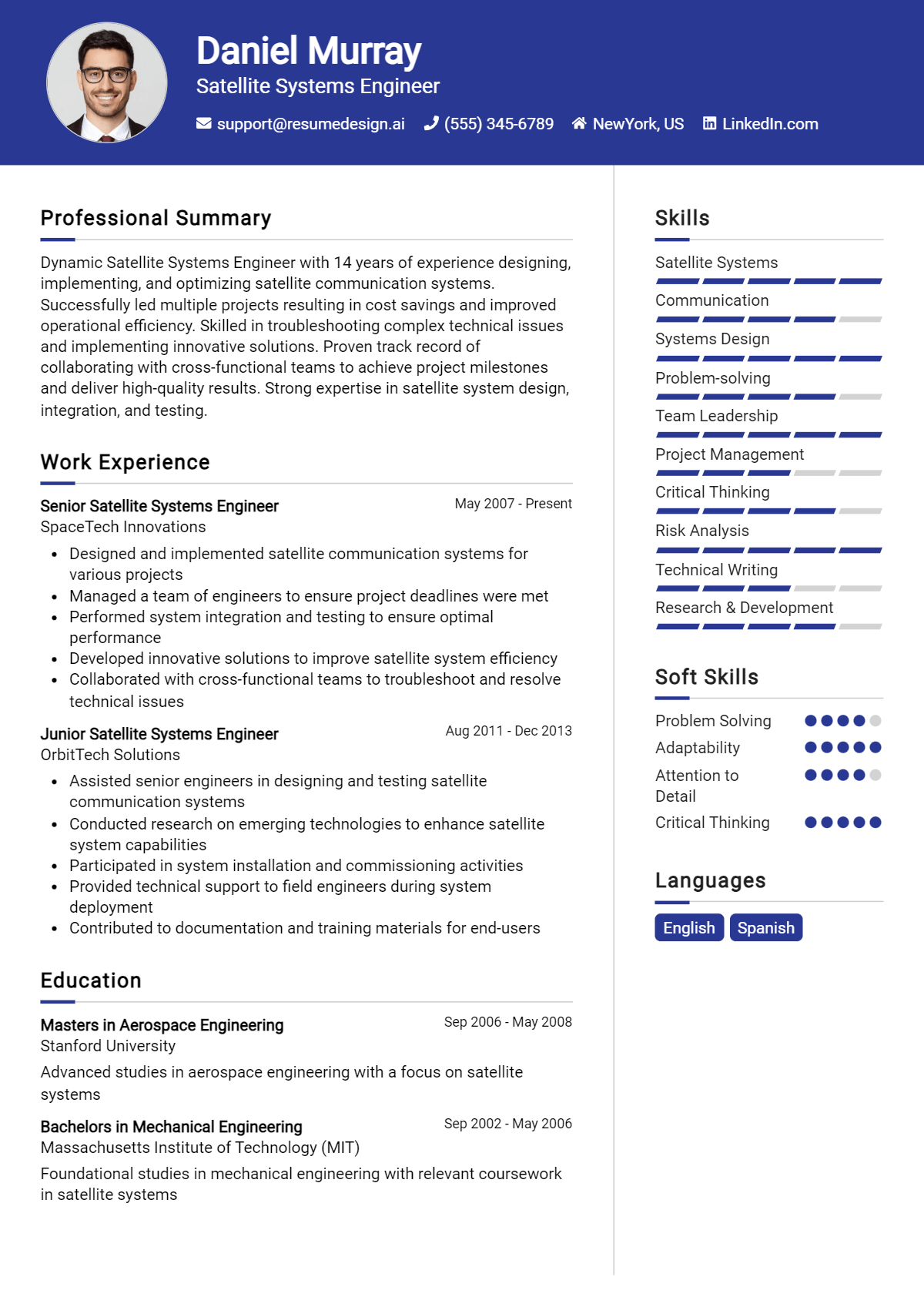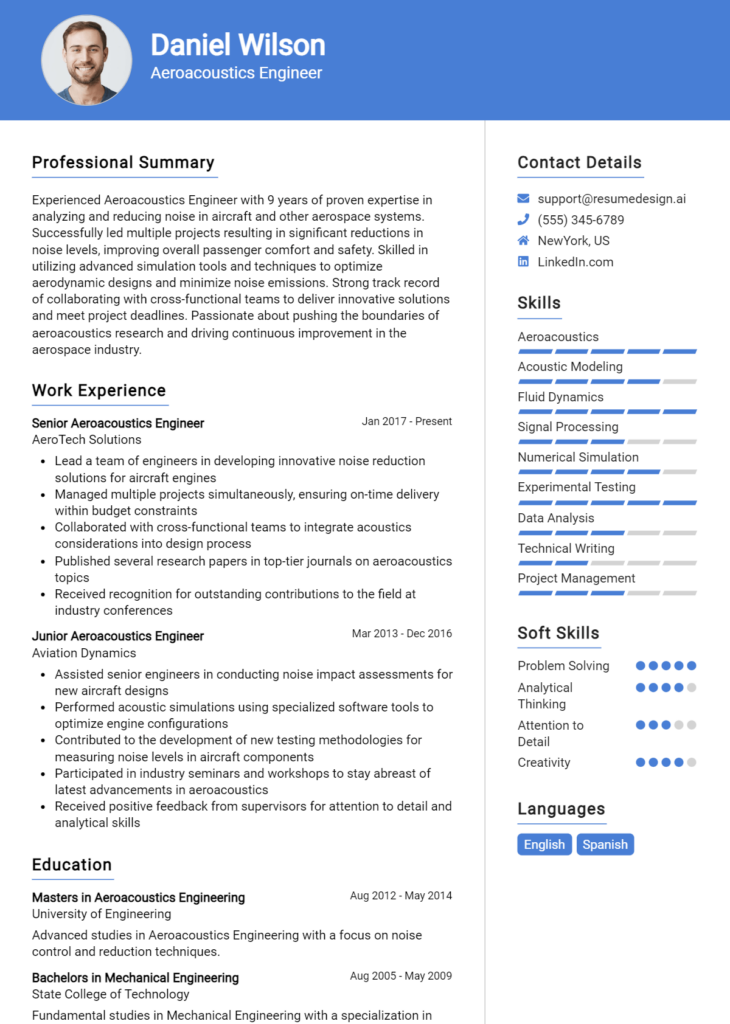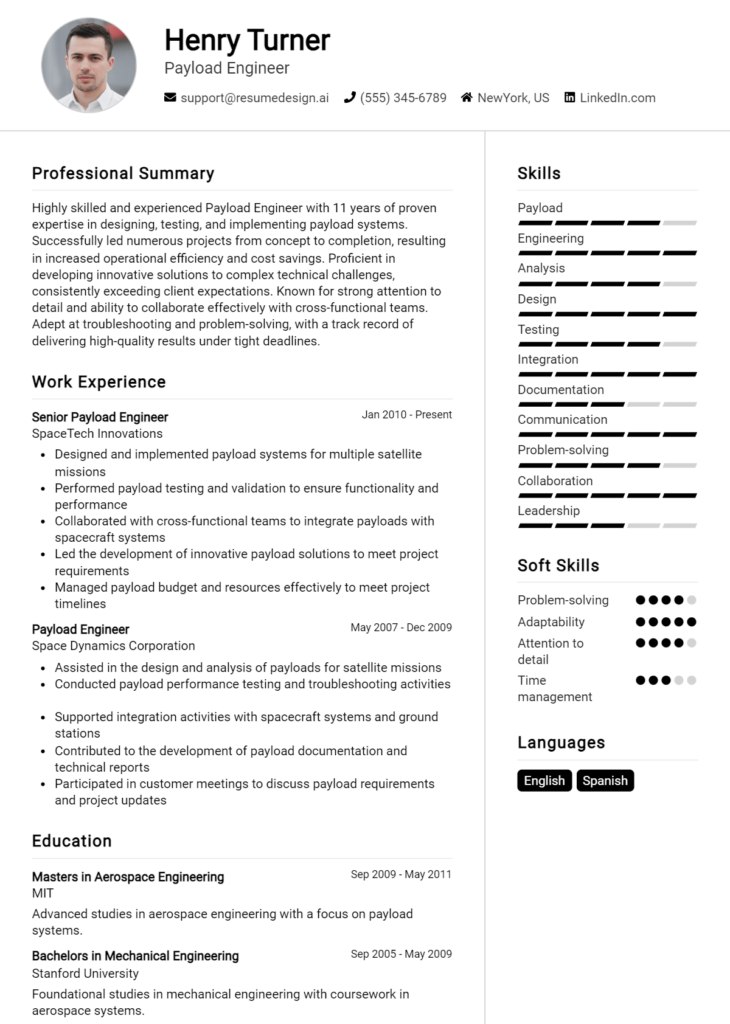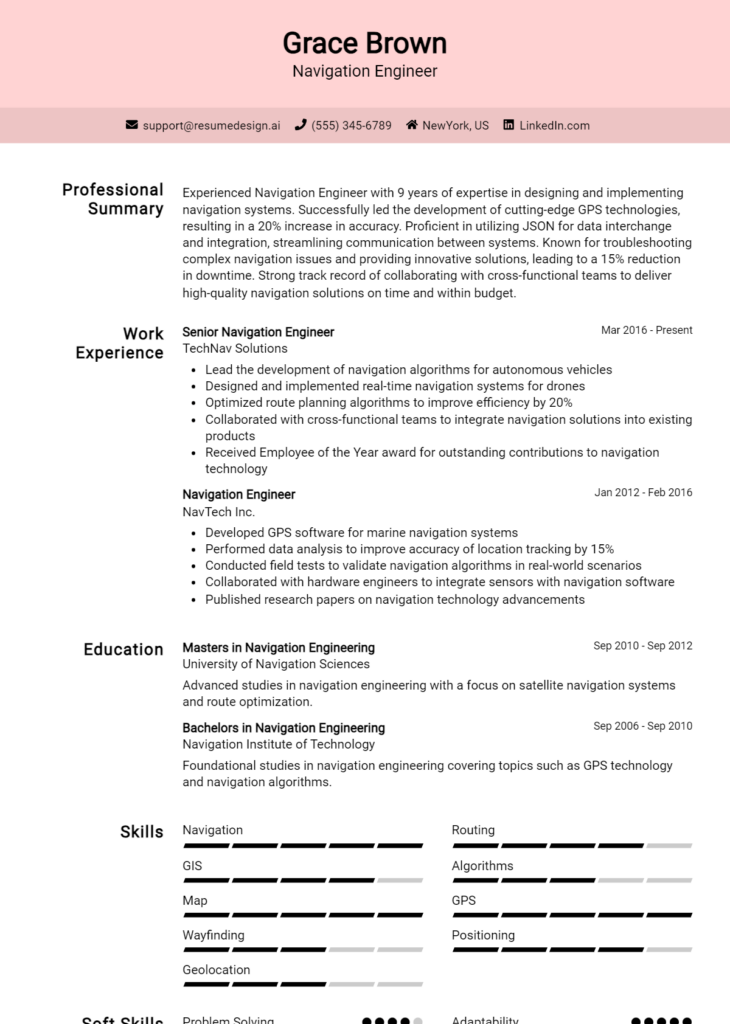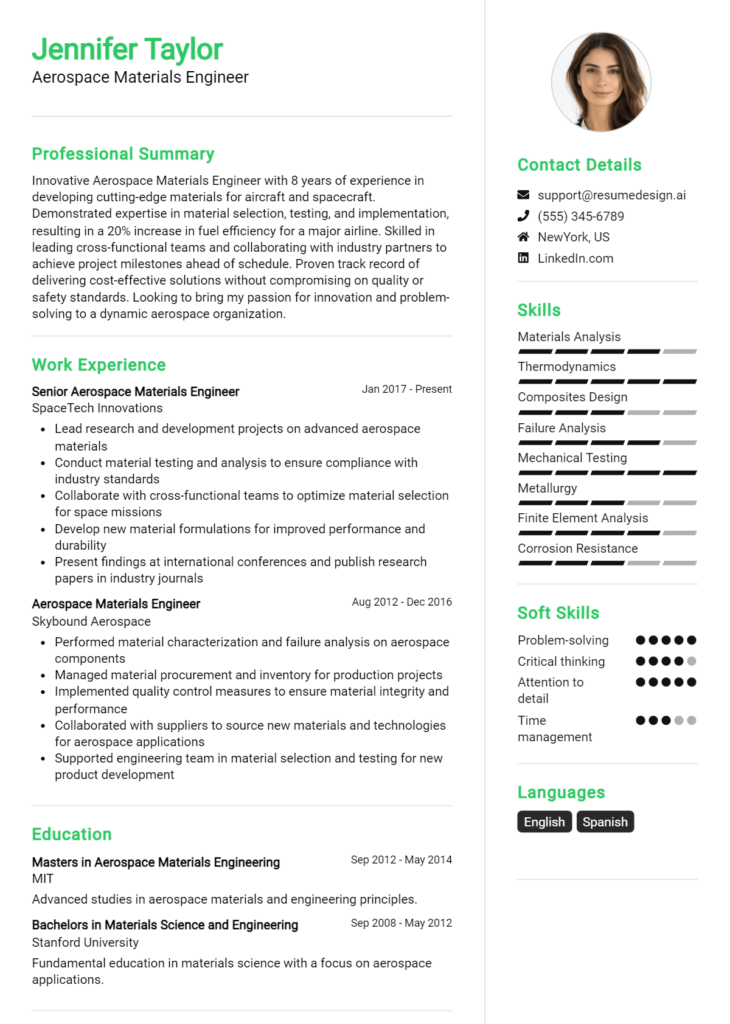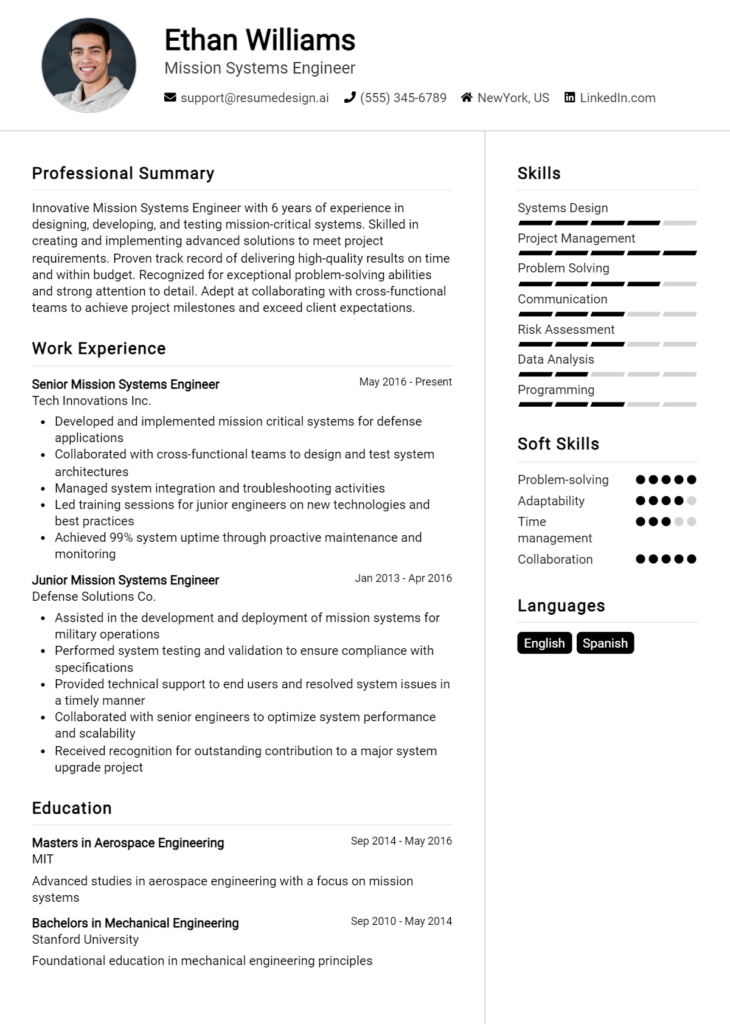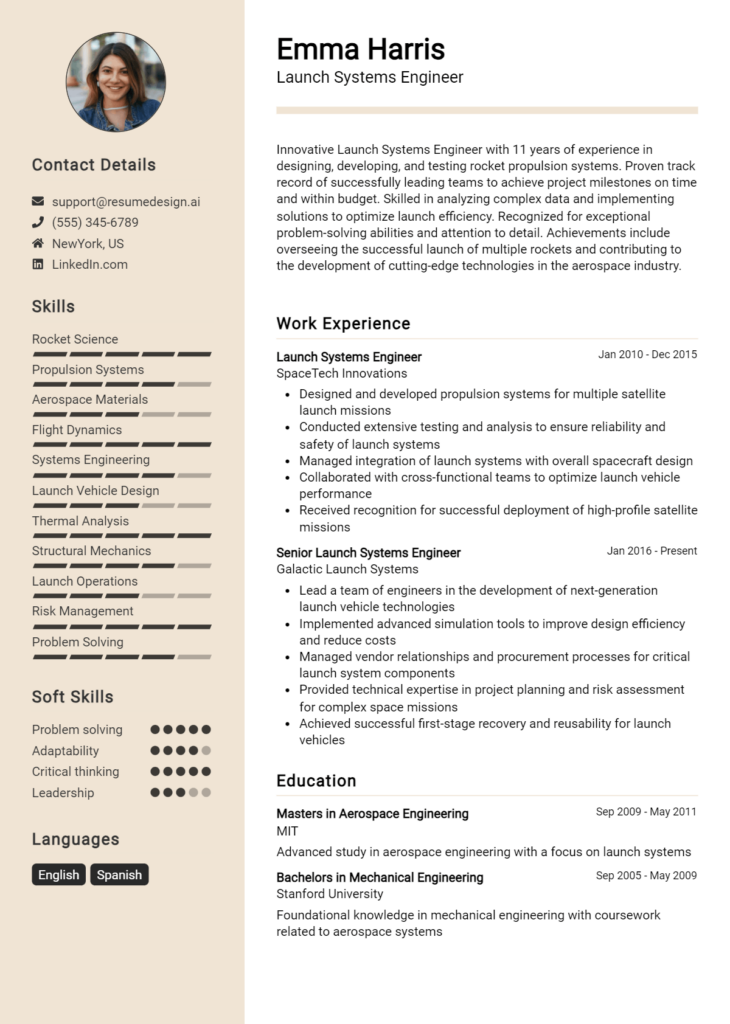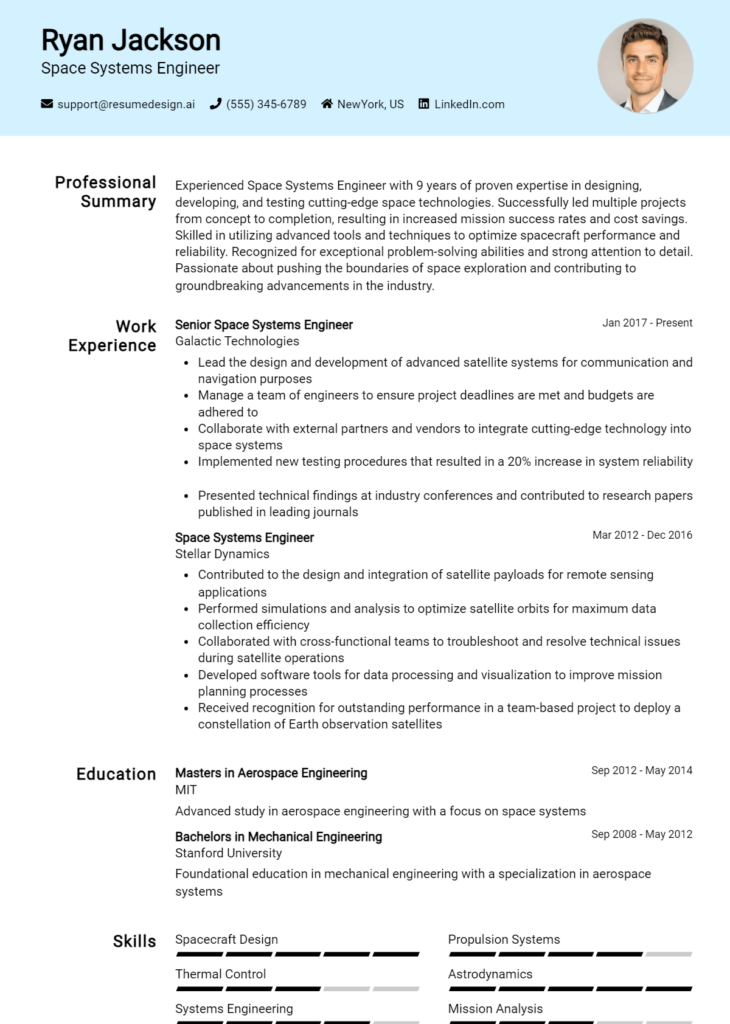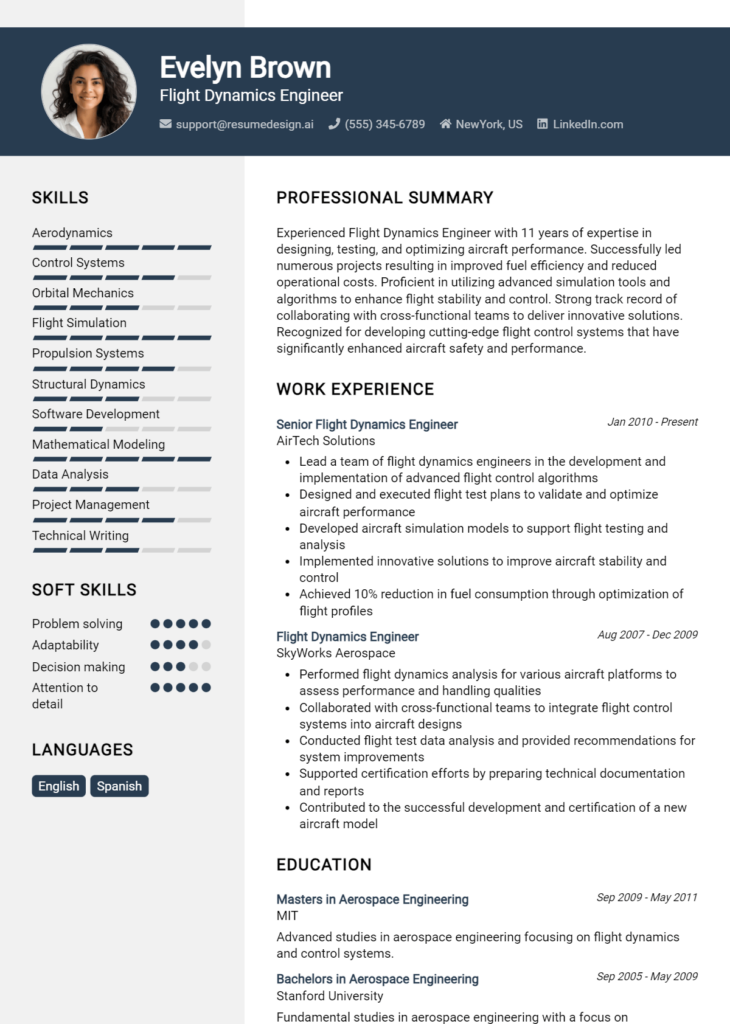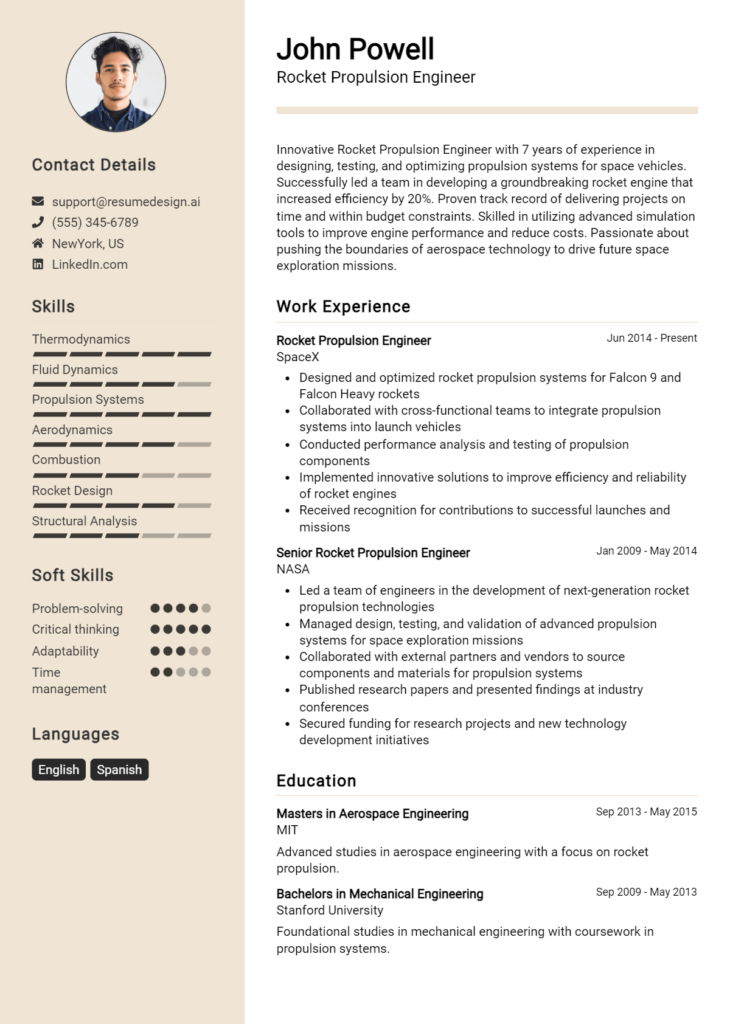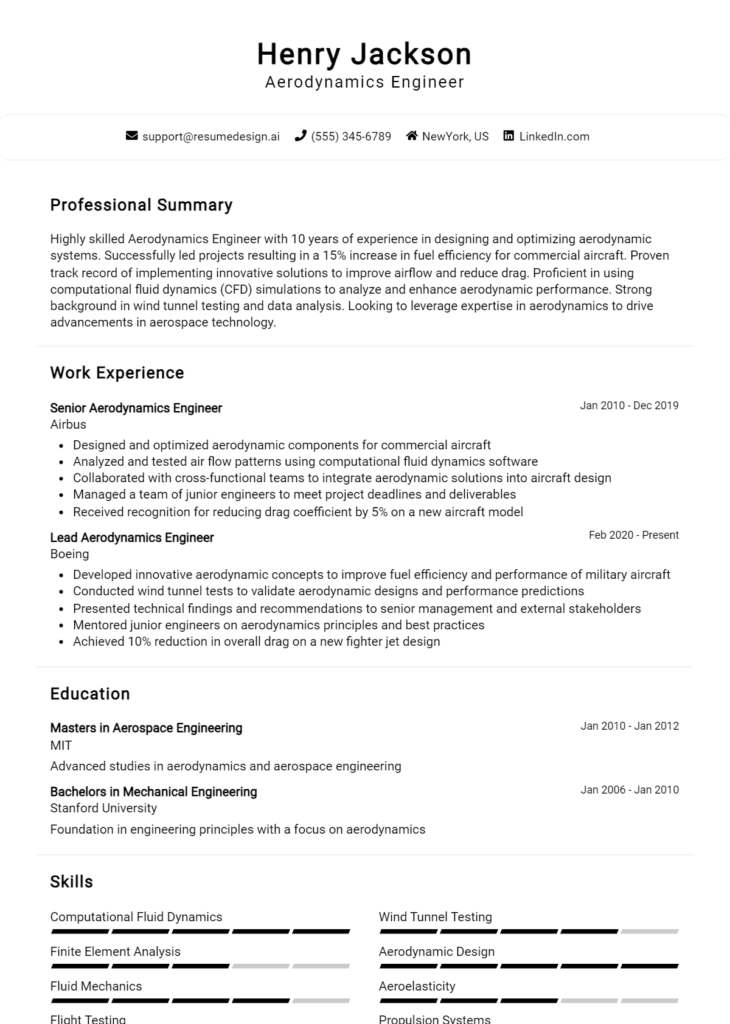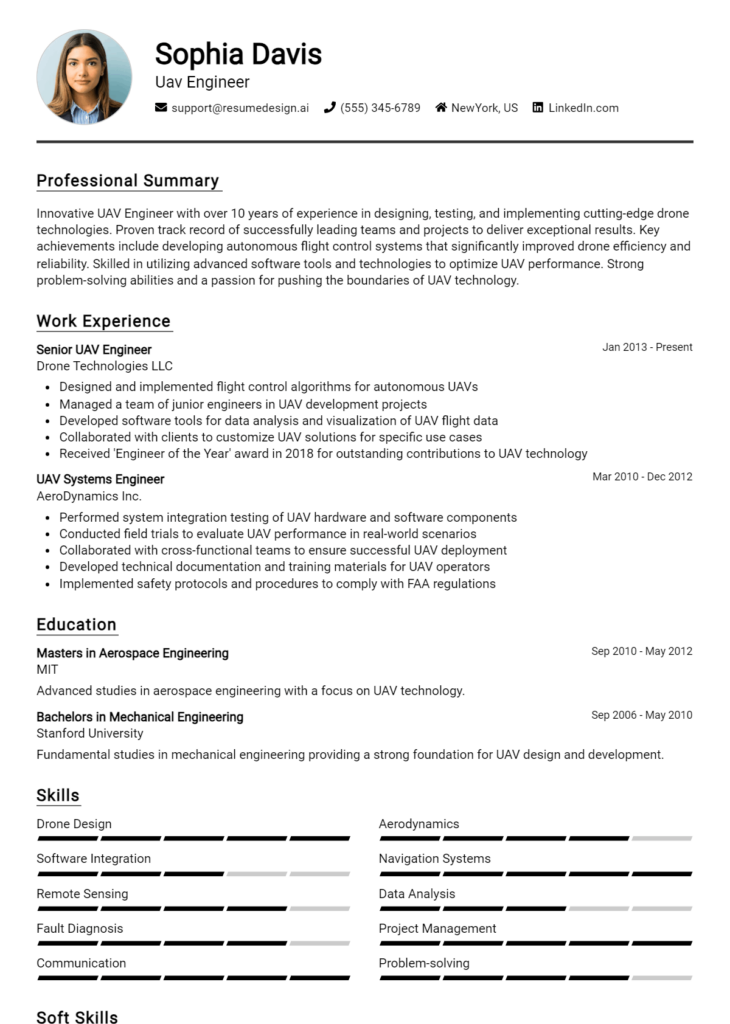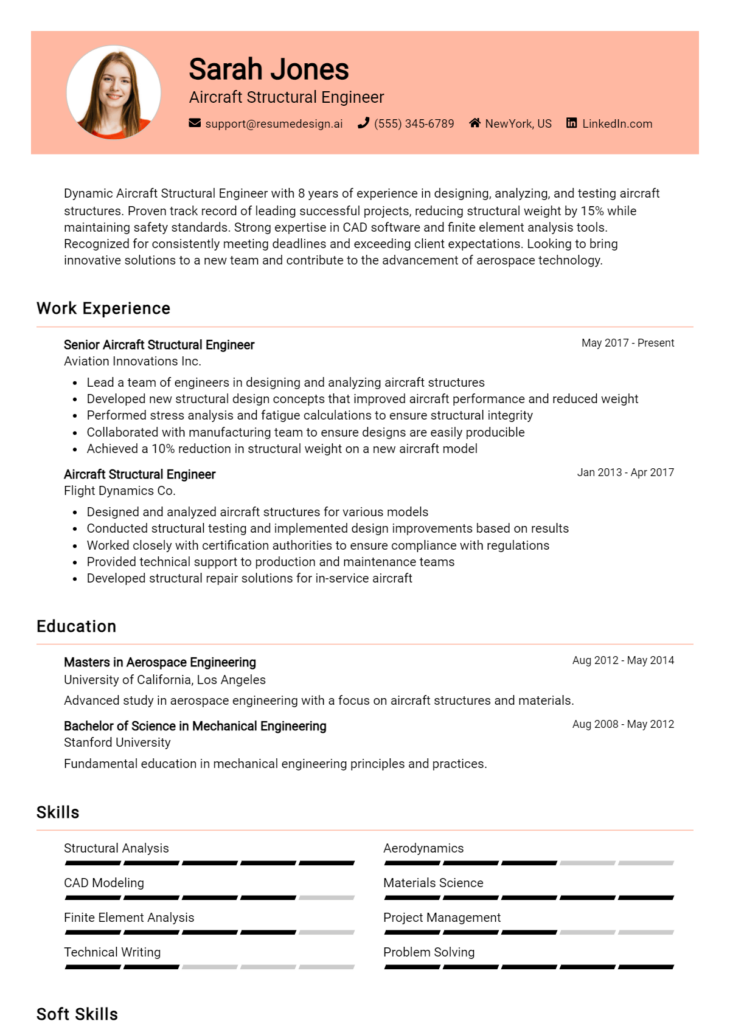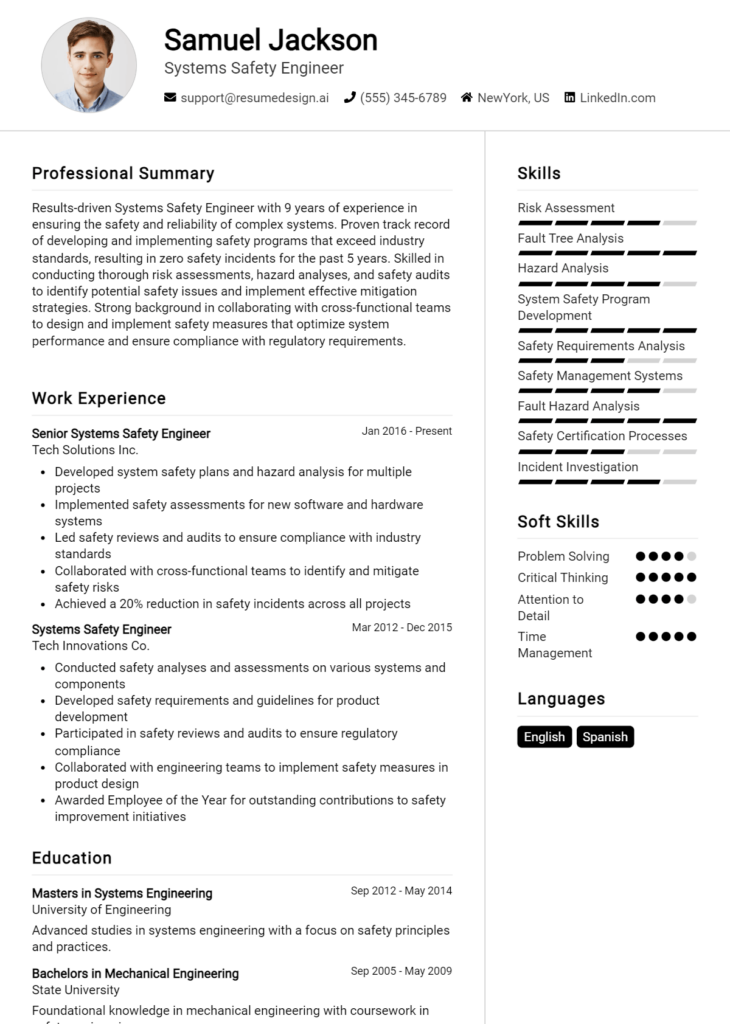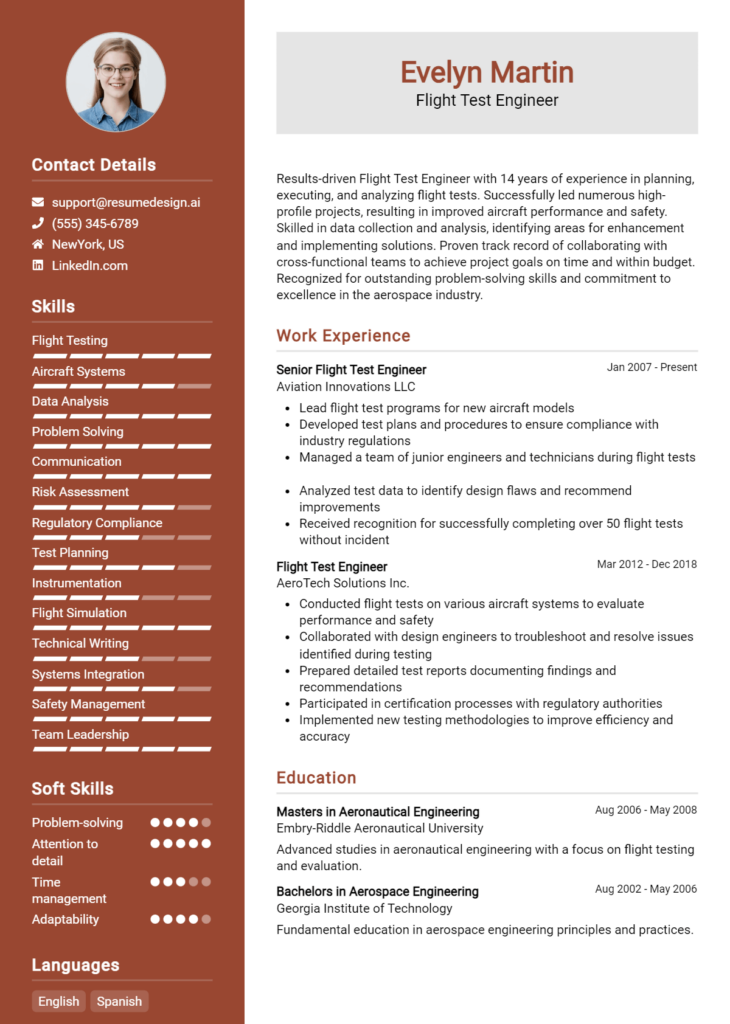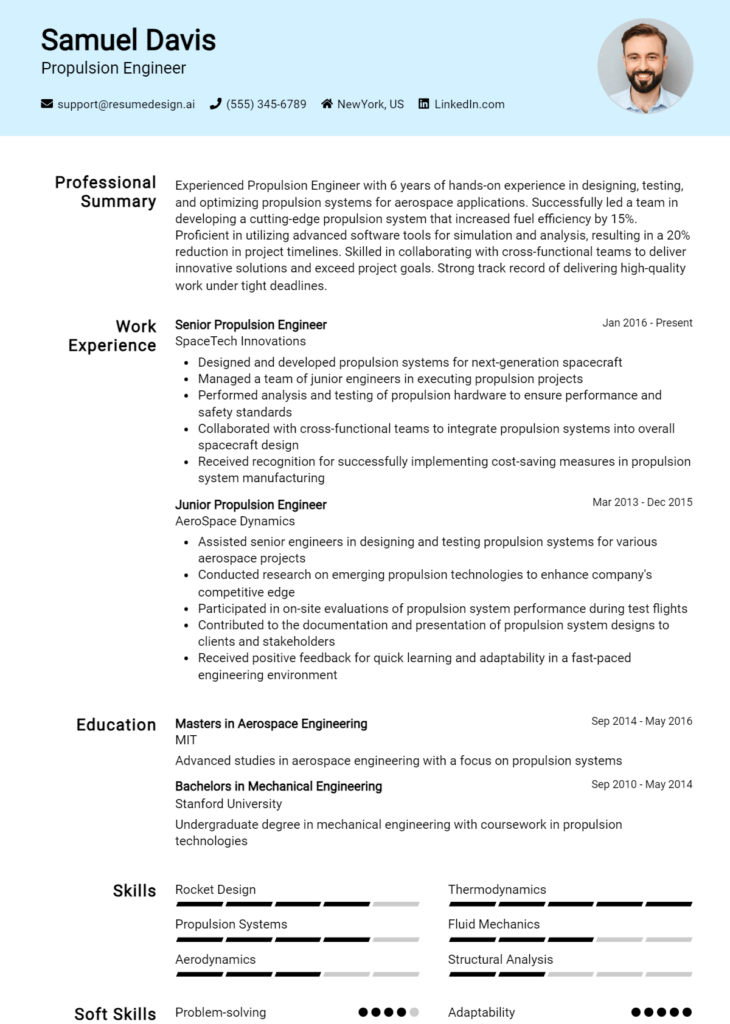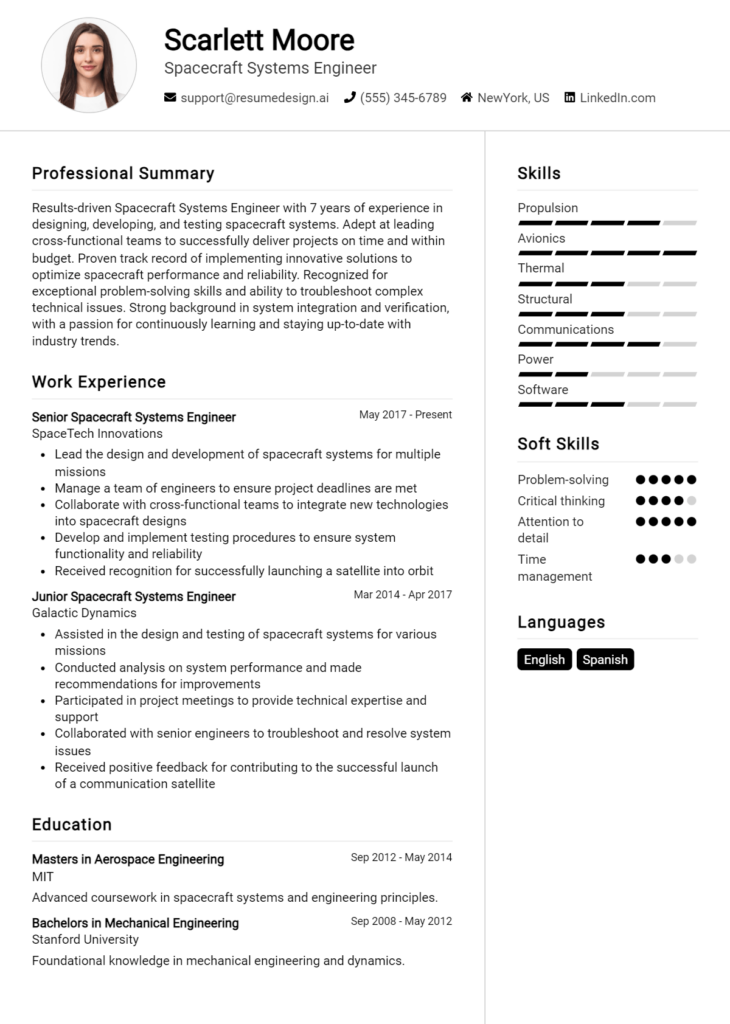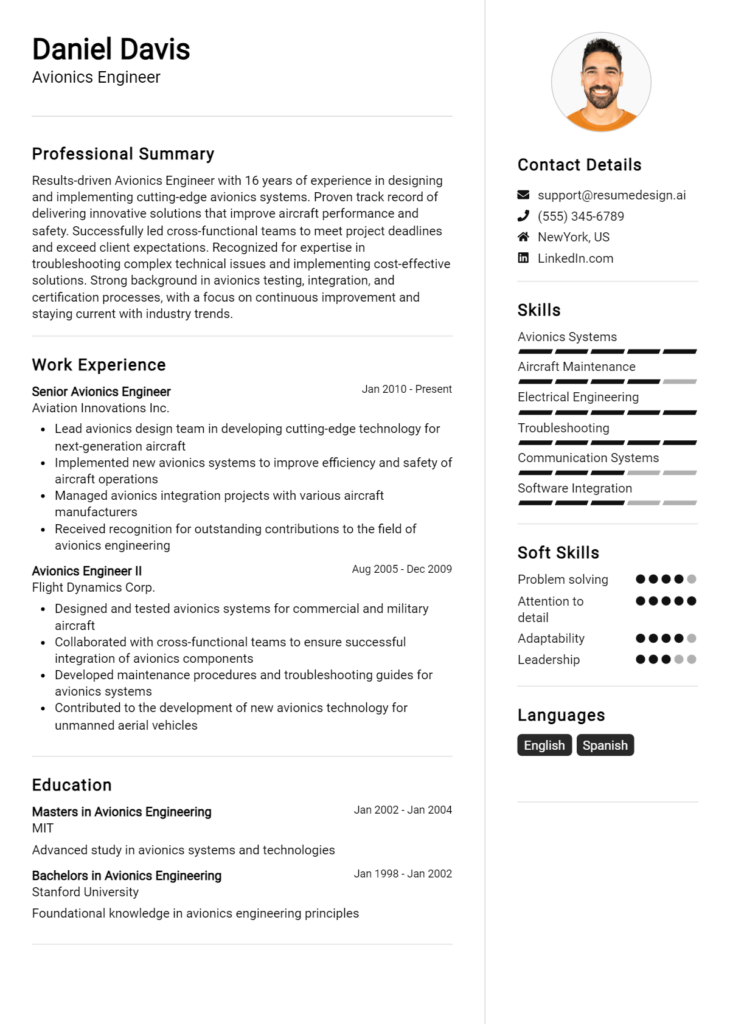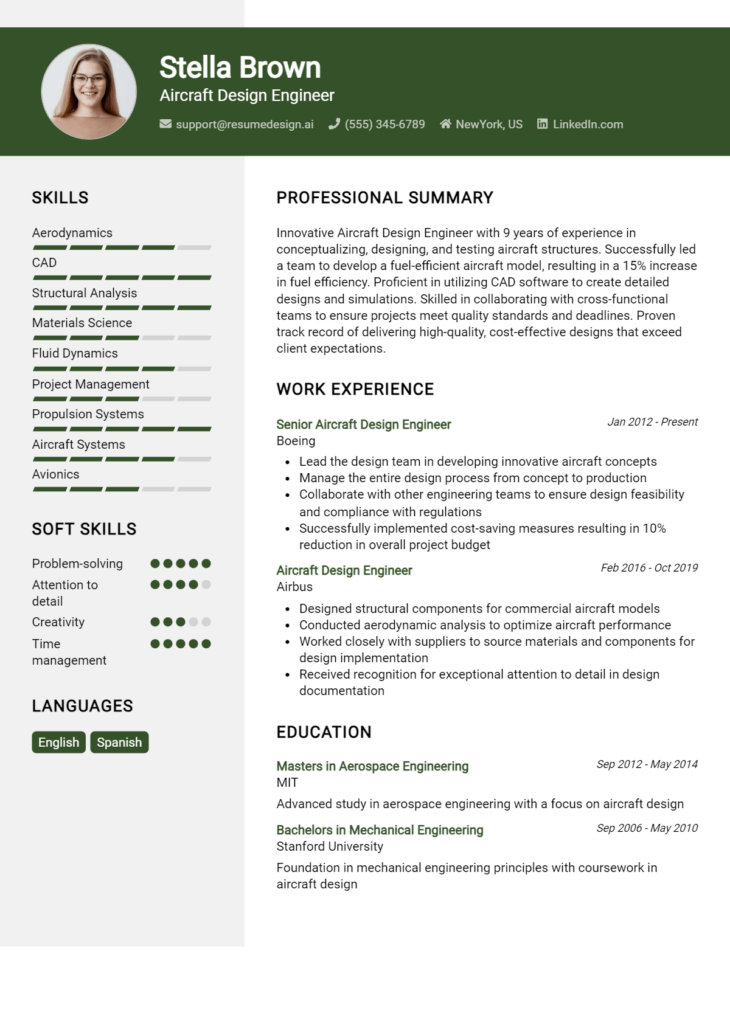Satellite Systems Engineer Core Responsibilities
A Satellite Systems Engineer plays a crucial role in designing, developing, and maintaining satellite systems, requiring strong technical, operational, and problem-solving skills. This professional collaborates across various departments, such as engineering, operations, and project management, ensuring seamless integration of satellite technologies. Success in this role directly contributes to the organization’s goals, making it essential to effectively highlight these competencies on a well-structured resume to attract potential employers.
Common Responsibilities Listed on Satellite Systems Engineer Resume
- Design and develop satellite systems architecture and components.
- Conduct system performance analysis and optimization.
- Collaborate with cross-functional teams for project execution.
- Manage satellite integration and testing procedures.
- Ensure compliance with industry standards and regulations.
- Perform troubleshooting and problem resolution for satellite systems.
- Develop and maintain technical documentation for satellite systems.
- Support satellite launch and on-orbit operations.
- Analyze and interpret data from satellite missions.
- Participate in risk assessment and mitigation strategies.
- Stay updated on emerging technologies in satellite communications.
- Provide technical support to clients and stakeholders.
High-Level Resume Tips for Satellite Systems Engineer Professionals
In the competitive field of satellite systems engineering, a well-crafted resume is crucial for making a strong first impression on potential employers. As the initial point of contact, your resume must effectively showcase both your technical skills and professional achievements, setting you apart from other candidates. The right resume can open doors to exciting career opportunities and demonstrate your suitability for the role. This guide will provide practical and actionable tips specifically tailored for Satellite Systems Engineer professionals, ensuring your resume resonates with hiring managers and highlights your expertise in this specialized field.
Top Resume Tips for Satellite Systems Engineer Professionals
- Tailor your resume for each job application by closely aligning your skills and experiences with the job description.
- Highlight relevant experience in satellite systems design, integration, testing, and operations.
- Quantify your achievements by using metrics that demonstrate your impact, such as project completion rates, cost savings, or performance improvements.
- Include industry-specific keywords that resonate with the position and are likely to be picked up by Applicant Tracking Systems (ATS).
- Showcase your proficiency in essential software and tools commonly used in satellite engineering, such as MATLAB, STK, or CAD software.
- Emphasize teamwork and collaboration skills by detailing experiences working in multidisciplinary teams on satellite projects.
- Detail any certifications or specialized training related to satellite systems, like systems engineering certifications or specific satellite communication courses.
- Highlight your problem-solving abilities through specific examples of challenges faced and solutions implemented in past projects.
- Keep your resume concise, ideally one to two pages, while ensuring all relevant information is clearly presented.
By implementing these tips, you can significantly enhance your chances of landing a job in the Satellite Systems Engineer field. A well-structured resume that effectively reflects your qualifications and achievements will not only capture the attention of hiring managers but also position you as a strong candidate in this specialized and dynamic industry.
Why Resume Headlines & Titles are Important for Satellite Systems Engineer
In the competitive field of satellite systems engineering, a well-crafted resume headline or title serves as the first impression for hiring managers. It is a critical component that can immediately capture attention and succinctly summarize a candidate's key qualifications in a single, impactful phrase. A strong headline not only reflects the candidate's expertise in satellite systems but also aligns closely with the specific job they are applying for. By being concise and relevant, a compelling resume headline can set the tone for the rest of the application, making it essential for candidates to invest time in this critical element of their resume.
Best Practices for Crafting Resume Headlines for Satellite Systems Engineer
- Keep it concise: Aim for a headline that is brief yet informative, ideally one line.
- Be role-specific: Tailor the headline to reflect the specific position of Satellite Systems Engineer.
- Highlight your expertise: Use key terms that showcase your unique skills and experiences in satellite systems.
- Use action words: Start with strong verbs that convey your proactive approach to engineering challenges.
- Incorporate metrics: If possible, include quantifiable results that demonstrate your impact in previous roles.
- Stay relevant: Ensure that the headline is directly related to the job description and requirements.
- Focus on value: Emphasize how your skills contribute to the success of satellite systems projects.
- Revise and refine: Continuously improve your headline based on feedback and the specific job you are targeting.
Example Resume Headlines for Satellite Systems Engineer
Strong Resume Headlines
"Experienced Satellite Systems Engineer with 10+ Years in Design and Implementation"
"Results-Driven Satellite Systems Engineer Specializing in Advanced Communication Technologies"
“Innovative Satellite Systems Engineer with Proven Success in Project Management and Team Leadership”
“Skilled Satellite Systems Engineer with Expertise in Payload Integration and Testing”
Weak Resume Headlines
“Engineer Looking for Opportunities”
“Experienced Professional”
“Seeking a Job in Engineering”
The strong headlines are effective because they provide specific information about the candidate's experience, skills, and focus areas in satellite systems engineering, allowing hiring managers to quickly assess the candidate's fit for the role. In contrast, the weak headlines fail to impress because they lack specificity and do not convey any meaningful information about the candidate's qualifications. They come off as generic and unoriginal, which can diminish a candidate's chances of standing out in a competitive job market.
Writing an Exceptional Satellite Systems Engineer Resume Summary
A resume summary is a crucial element for a Satellite Systems Engineer as it serves as the first impression to hiring managers. This brief yet powerful paragraph should encapsulate the candidate's key skills, relevant experience, and notable accomplishments in a manner that is both concise and impactful. A well-crafted summary not only captures attention quickly but also showcases how the candidate’s expertise aligns with the specific requirements of the job they are applying for. By tailoring the summary to highlight pertinent qualifications, candidates can significantly increase their chances of standing out in a competitive field.
Best Practices for Writing a Satellite Systems Engineer Resume Summary
- Quantify achievements: Use numbers and metrics to demonstrate the impact of your work.
- Focus on relevant skills: Highlight technical skills and specialized knowledge pertinent to satellite systems engineering.
- Tailor the summary: Customize the summary to align with the job description and specific requirements of the position.
- Be concise: Keep the summary brief, ideally no more than 3-4 sentences.
- Use action verbs: Start sentences with strong action verbs to convey confidence and proactivity.
- Include keywords: Incorporate industry-specific keywords to pass through Applicant Tracking Systems (ATS).
- Highlight unique accomplishments: Mention any awards, recognitions, or standout projects that set you apart from other candidates.
- Showcase your passion: Briefly express your enthusiasm for the field and your commitment to advancing satellite technology.
Example Satellite Systems Engineer Resume Summaries
Strong Resume Summaries
Results-driven Satellite Systems Engineer with over 7 years of experience in designing and implementing satellite communication systems. Successfully led a team that increased data transmission efficiency by 30% through innovative signal processing techniques.
Dedicated Satellite Systems Engineer with expertise in systems integration and testing. Achieved a 25% reduction in project timelines by optimizing workflows and enhancing team collaboration on complex satellite projects.
Highly skilled Satellite Systems Engineer with a proven track record of delivering high-quality satellite payloads on schedule. Recognized for reducing operational costs by 15% through strategic vendor negotiations and process improvements.
Adept Satellite Systems Engineer with a strong background in RF systems and satellite operations. Contributed to the successful launch of 5 satellites, ensuring mission objectives were met with 100% reliability.
Weak Resume Summaries
Experienced engineer looking for a job in satellite systems. I have a variety of skills and am willing to learn more.
Professional with background in engineering and a focus on satellite projects. I am a team player and enjoy working with others.
The strong resume summaries are considered effective because they provide specific examples of achievements, quantify results, and highlight relevant skills directly tied to the role of a Satellite Systems Engineer. Each summary conveys a clear sense of the candidate's capabilities and accomplishments, making them memorable to hiring managers. In contrast, the weak summaries lack detail, specificity, and measurable outcomes, rendering them generic and less impactful in a competitive job market.
Work Experience Section for Satellite Systems Engineer Resume
The work experience section of a Satellite Systems Engineer resume plays a pivotal role in illustrating the candidate's technical proficiency and practical application of skills within the aerospace industry. This section not only highlights the candidate's ability to manage teams and collaborate effectively but also emphasizes their capability to deliver high-quality products under stringent timelines. By quantifying achievements and aligning past experiences with industry standards, candidates can effectively demonstrate their value to potential employers and distinguish themselves in a competitive job market.
Best Practices for Satellite Systems Engineer Work Experience
- Focus on specific technical skills relevant to satellite systems, such as systems integration, testing, and orbital mechanics.
- Quantify achievements using metrics, such as project timelines, budget adherence, and performance improvements.
- Highlight leadership roles in projects, showcasing your ability to manage teams and coordinate efforts across departments.
- Include collaborative projects that illustrate your ability to work with cross-functional teams.
- Align your experience with industry standards and best practices to demonstrate relevance and expertise.
- Use action verbs to convey a sense of accomplishment and proactivity in your contributions.
- Tailor your work experience to match the specific requirements of the job you're applying for.
- Keep descriptions concise and focused, avoiding jargon that may not be understood by all readers.
Example Work Experiences for Satellite Systems Engineer
Strong Experiences
- Led a cross-functional team to successfully launch a communication satellite six months ahead of schedule, achieving a cost savings of 15% over budget projections.
- Developed and implemented a new testing protocol that increased satellite system reliability by 30%, resulting in a significant reduction in post-launch anomalies.
- Managed the integration of onboard systems for a Low Earth Orbit (LEO) satellite, facilitating a 20% improvement in data transmission rates compared to previous models.
- Collaborated with international teams to design a satellite payload, which contributed to a joint mission that received recognition for its innovative technology at the Aerospace Innovations Conference.
Weak Experiences
- Worked on various satellite projects and contributed to team efforts without specific results mentioned.
- Assisted in the testing of satellite systems and participated in meetings, but did not outline specific responsibilities or achievements.
- Involved in satellite design projects and gained experience, but failed to quantify any outcomes or impacts.
- Helped with documentation and coordination of tasks without detailing the significance or results of the work performed.
The examples provided illustrate a clear distinction between strong and weak experiences. Strong experiences are characterized by specific achievements, quantifiable results, and clear contributions to team efforts, which collectively demonstrate the candidate's value and effectiveness in their role. In contrast, weak experiences lack specificity, measurable outcomes, and do not convey a strong sense of impact, making it difficult for potential employers to assess the candidate's capabilities and relevance to the role of a Satellite Systems Engineer.
Education and Certifications Section for Satellite Systems Engineer Resume
The education and certifications section of a Satellite Systems Engineer resume plays a crucial role in establishing the candidate's qualifications and expertise in a highly specialized field. This section not only showcases the academic background of the applicant but also emphasizes any industry-relevant certifications and continuous learning efforts. By providing relevant coursework, certifications, and specialized training, candidates can significantly enhance their credibility and demonstrate their alignment with the technical demands of the job. Hiring managers often look for evidence of formal education and ongoing professional development to ensure candidates are well-equipped to tackle the complexities of satellite systems engineering.
Best Practices for Satellite Systems Engineer Education and Certifications
- Prioritize relevant degrees such as a Bachelor's or Master's in Aerospace Engineering, Electrical Engineering, or a related field.
- Include industry-recognized certifications like Certified Systems Engineering Professional (CSEP) or Project Management Professional (PMP).
- Detail relevant coursework that directly pertains to satellite design, systems engineering, or telecommunications.
- Highlight any specialized training in satellite systems, project management, or related software tools (e.g., MATLAB, STK).
- Keep the information concise and focused on qualifications that are pertinent to the satellite systems engineering role.
- Use clear and professional formatting to enhance readability and emphasize key qualifications.
- Update the section regularly to reflect new certifications or educational achievements.
- Consider including honors or awards received during academic or professional pursuits that showcase excellence in the field.
Example Education and Certifications for Satellite Systems Engineer
Strong Examples
- Bachelor of Science in Aerospace Engineering, University of California, Los Angeles (UCLA), 2020
- Master of Science in Space Systems Engineering, Georgia Institute of Technology, 2022
- Certified Systems Engineering Professional (CSEP), International Council on Systems Engineering, 2023
- Relevant Coursework: Satellite Communication Systems, Advanced Astrodynamics, and Spacecraft Design.
Weak Examples
- Bachelor of Arts in History, State University, 2015
- Certification in Basic Computer Skills, Online Learning Platform, 2020
- High School Diploma, Local High School, 2011
- Outdated certification in Network Administration, 2018 (no longer relevant to satellite systems).
The strong examples are considered effective because they demonstrate relevant degrees, recognized certifications, and coursework that align directly with the requirements of a Satellite Systems Engineer. These qualifications highlight the candidate's specialized knowledge and commitment to the field. In contrast, the weak examples lack relevance to satellite systems engineering, showcasing outdated or unrelated qualifications that do not contribute to the candidate's credibility in this technical area.
Top Skills & Keywords for Satellite Systems Engineer Resume
In the competitive field of satellite systems engineering, a well-crafted resume that highlights relevant skills is crucial for catching the attention of potential employers. Skills not only demonstrate a candidate's technical abilities but also their capability to navigate complex projects and collaborate effectively with multidisciplinary teams. A strong resume should balance both hard and soft skills, showcasing a blend of technical proficiency and interpersonal abilities that are vital for success in this role. By emphasizing these skills, candidates can present themselves as well-rounded professionals ready to tackle the challenges of satellite systems engineering.
Top Hard & Soft Skills for Satellite Systems Engineer
Soft Skills
- Problem-solving
- Team collaboration
- Communication skills
- Critical thinking
- Adaptability
- Time management
- Leadership
- Attention to detail
- Creativity
- Project management
Hard Skills
- Satellite design and analysis
- Systems engineering principles
- RF and microwave engineering
- Software proficiency (e.g., MATLAB, Simulink)
- Electrical and electronic systems
- Signal processing
- Orbital mechanics
- Satellite communication protocols
- Ground station operations
- Knowledge of regulatory standards (e.g., ITAR, FCC)
By ensuring that your resume includes a comprehensive list of both skills and relevant work experience, you can effectively portray your qualifications and readiness for a successful career in satellite systems engineering.
Stand Out with a Winning Satellite Systems Engineer Cover Letter
Dear [Hiring Manager's Name],
I am writing to express my enthusiasm for the Satellite Systems Engineer position at [Company Name] as advertised on [Job Board/Company Website]. With a robust background in satellite systems design, integration, and analysis, coupled with my passion for advancing aerospace technology, I am excited about the opportunity to contribute to your team. My experience in leading projects from conception through to successful launch aligns well with the goals of [Company Name], and I am eager to bring my expertise in satellite communications and systems engineering to your innovative projects.
During my tenure at [Previous Company Name], I successfully led a multidisciplinary team to develop and deploy a state-of-the-art satellite communication system that resulted in a 30% increase in data throughput. This experience honed my skills in systems architecture, performance analysis, and risk management, ensuring that all components were rigorously tested and validated. My proficiency in tools such as MATLAB and STK, along with my strong analytical skills, enables me to tackle complex engineering challenges effectively. I am particularly drawn to [Company Name]’s commitment to pushing the boundaries of satellite technology, and I am excited to collaborate with your team to achieve groundbreaking results.
Moreover, I possess a deep understanding of the regulatory landscape and best practices surrounding satellite operations, which has allowed me to successfully navigate the complexities of project requirements and compliance. I thrive in dynamic environments and am adept at managing multiple priorities while delivering high-quality results. My excellent communication skills facilitate effective collaboration with diverse teams, ensuring that everyone is aligned and informed throughout the project lifecycle. I am confident that my technical background and proactive approach would make a valuable addition to [Company Name] as you continue to lead the industry.
Thank you for considering my application. I look forward to the opportunity to discuss how my skills and experiences align with the needs of your team. I am excited about the possibility of contributing to [Company Name] and am eager to help advance your mission in satellite systems engineering.
Sincerely,
[Your Name]
[Your Contact Information]
Common Mistakes to Avoid in a Satellite Systems Engineer Resume
When crafting a resume for a Satellite Systems Engineer position, it's crucial to avoid common pitfalls that can hinder your chances of landing an interview. A well-structured resume not only highlights your technical skills and experience but also demonstrates your understanding of the specific requirements of the role. Below are some frequent mistakes candidates make that can detract from the effectiveness of their resumes:
Lack of Specificity: Failing to include specific technical skills or tools related to satellite systems can make your resume less compelling. Be precise about the software, programming languages, and methodologies you are familiar with.
Overly Generic Objective Statements: Using a generic objective statement that doesn't tailor to the satellite systems engineering field can weaken your resume. Instead, craft an objective that reflects your passion and specific career goals within the industry.
Ignoring Relevant Experience: Omitting relevant projects or internships that demonstrate your experience in satellite systems can be detrimental. Always highlight relevant experience, even if it was part of your education.
Neglecting Key Achievements: Focusing too much on responsibilities rather than achievements can make your contributions seem less impactful. Quantify your achievements with metrics or specific outcomes to showcase your effectiveness.
Poor Formatting and Structure: A cluttered or poorly formatted resume can make it difficult for hiring managers to quickly find essential information. Use clear headings, bullet points, and consistent formatting to enhance readability.
Typos and Grammatical Errors: Submitting a resume with spelling or grammatical errors can give the impression of carelessness. Always proofread your document or have someone else review it to ensure it’s polished.
Failing to Showcase Soft Skills: While technical skills are vital, neglecting to include soft skills like teamwork, communication, and problem-solving can leave a gap in your qualifications. Highlight these skills with specific examples from your experience.
Not Tailoring for Each Application: Sending out a one-size-fits-all resume can significantly reduce your chances of getting noticed. Tailor your resume for each application, emphasizing the skills and experiences that align with the specific job description.
Conclusion
As we explored the essential responsibilities and skills of a Satellite Systems Engineer, it became clear that this role requires a blend of technical expertise, problem-solving abilities, and effective communication skills. Key areas of focus include systems design, integration, testing, and the ability to work collaboratively within multidisciplinary teams. Furthermore, familiarity with satellite technology, software development, and project management principles can significantly enhance your prospects in this competitive field.
In conclusion, whether you are a seasoned professional or just starting your career as a Satellite Systems Engineer, it's crucial to ensure that your resume reflects your qualifications and experiences effectively. Tailoring your resume to highlight relevant skills and achievements is vital for standing out to potential employers.
To assist you in this process, we encourage you to take advantage of various resources available online. Utilize resume templates to structure your resume professionally, and consider using the resume builder for a streamlined and user-friendly experience. Additionally, reviewing resume examples can provide inspiration and insight into what top candidates include in their applications. Don't forget to enhance your job application with a well-crafted cover letter by exploring our cover letter templates.
Now is the perfect time to review and refine your Satellite Systems Engineer resume. Take action today to enhance your career prospects!

